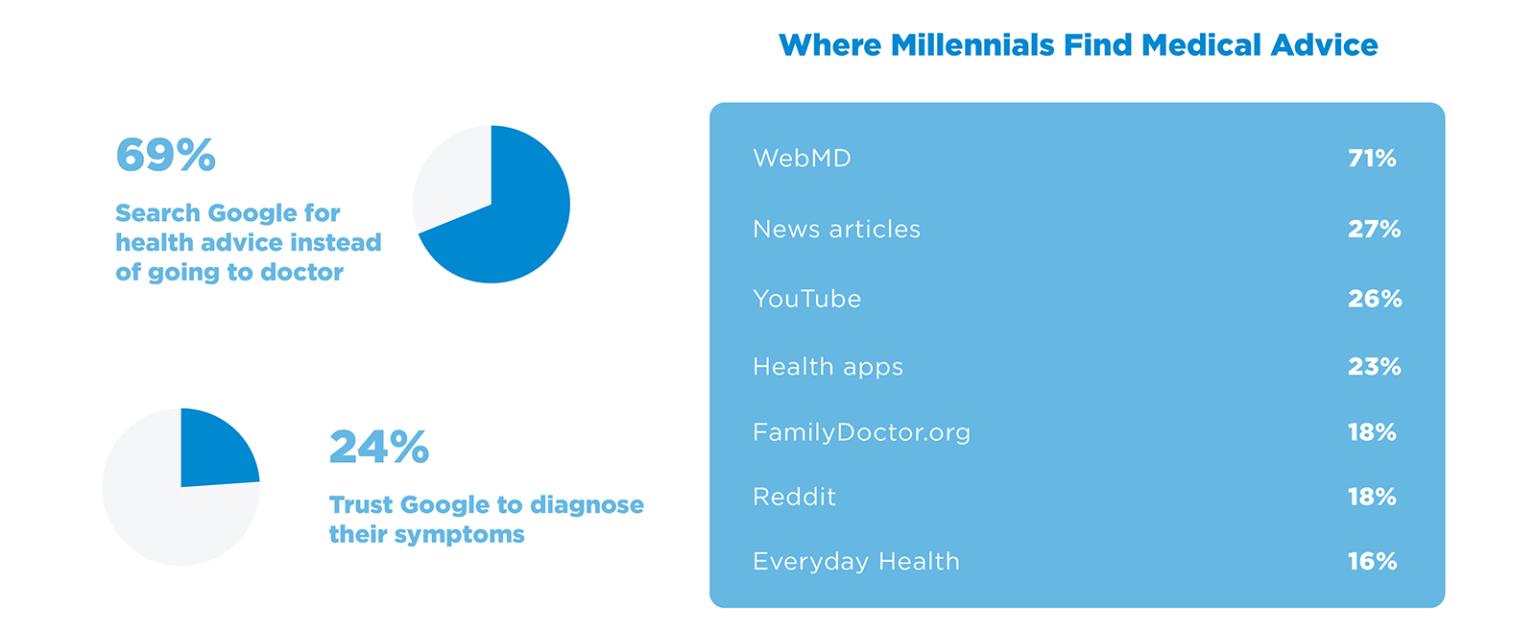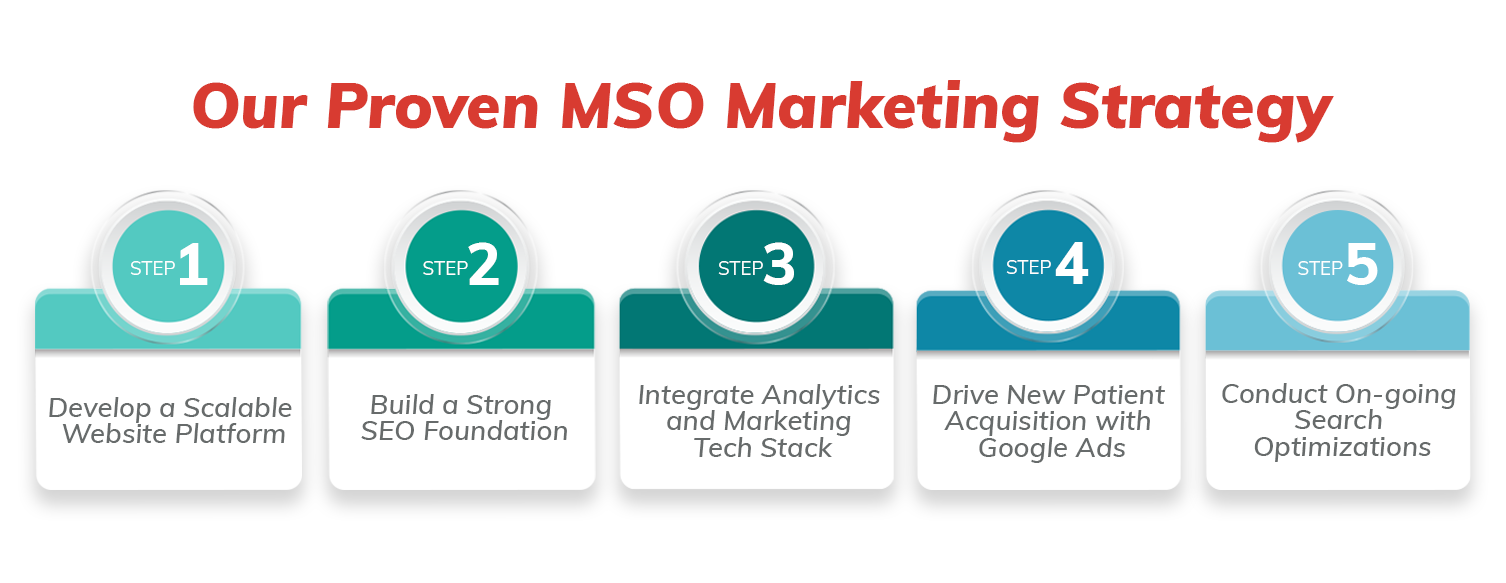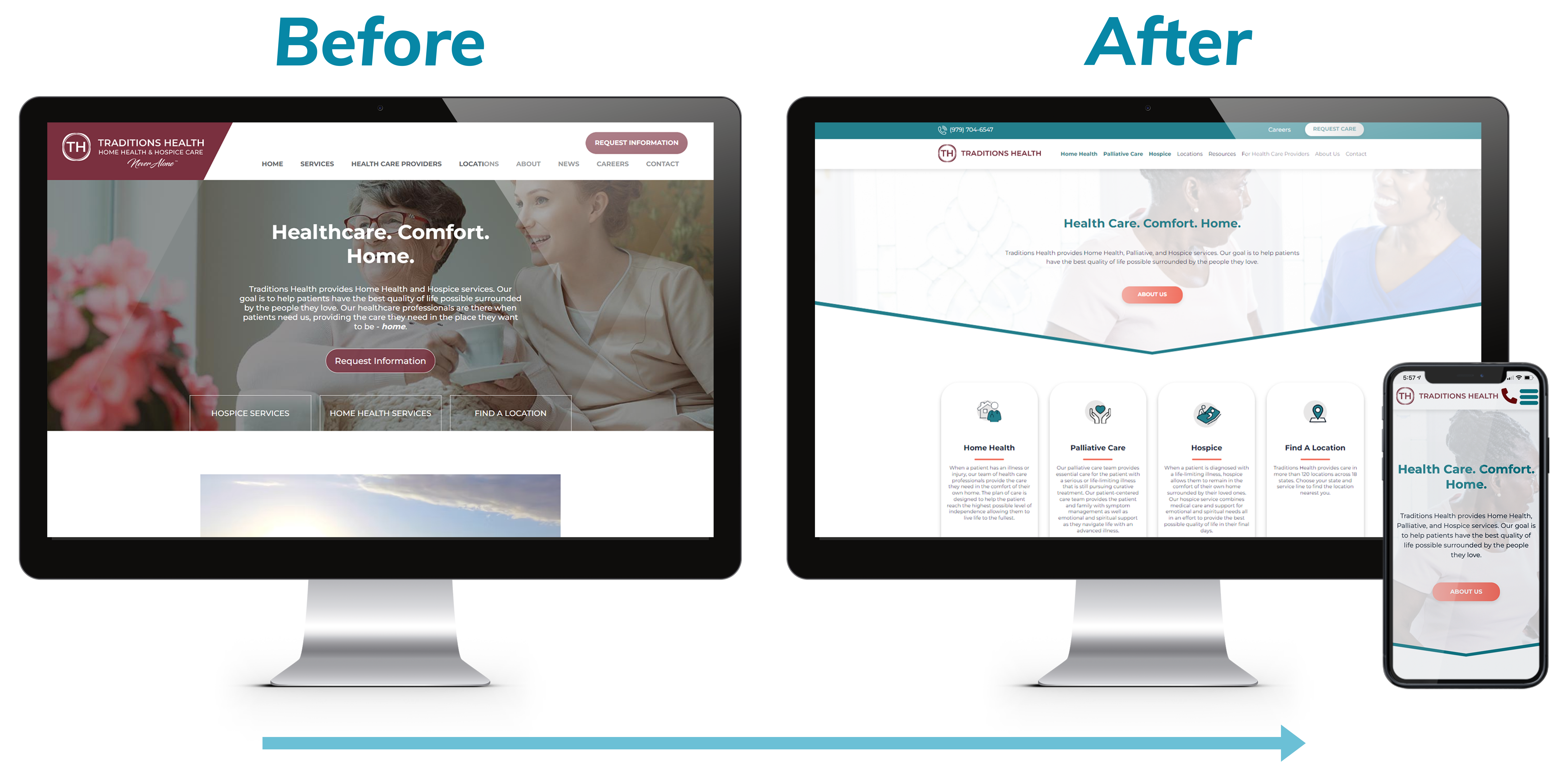The healthcare industry is quickly rebounding as we move on from the pandemic. Consumer demand is returning to pre-pandemic levels, and more patients are catching up on outpatient visits and elective hospitalizations. However, there’s no doubt that the pandemic has done a number to the healthcare industry, especially after a sharp decline in healthcare utilization. If anything, healthcare providers have collectively realized that in order to stay ahead of the curve, they need to accelerate the adoption of digital solutions based on the changing industry landscape.
Table of Contents
This is where healthcare marketing comes into play. Physicians and other healthcare providers must step up their digital marketing game to increase patient volume and remain competitive. Join me as we discuss the importance of healthcare marketing and its impacts and benefits for your practice.
What Exactly is Healthcare Marketing?
Like other businesses, healthcare providers need multiple means to spread the word about their facilities, services, and treatments. The healthcare system is complex, with many different components, treatments, and procedures, which can overwhelm the average consumer. Healthcare marketing aims to bridge this gap by utilizing creative strategies to engage and educate patients.
This is especially critical since consumer behavior has changed in the digital age. People no longer rely on referrals, word of mouth, and traditional marketing when searching for a physician. Modern consumers have taken ownership of their healthcare journey and will research and evaluate practitioners through the Internet. In fact, 69% of millennial patients would turn to the web for medical advice instead of their primary care physician.

Healthcare marketing aims to increase brand awareness, build trust and credibility with patients, and guide them through their healthcare journey. With that said, healthcare marketing is a multi-tiered approach involving various strategies such as search engine optimization (SEO), paid search, web design, social media, reputation management, and more.
The Importance of Healthcare Marketing
As more private equity companies seek to consolidate practices within the healthcare system, smaller practices need all the help they can get to compete. This is where healthcare marketing comes into play. In today’s consumer-driven care landscape, healthcare organizations must employ a targeted, data-driven healthcare marketing campaign if they’re hoping to be more competitive.
With the right strategies and tools, medical providers can have the upper hand by attracting new patients and retaining old ones. For instance, you can engage and educate patients with relevant, personalized, and timely healthcare content. Not only will your practice be poised to attract new patients with a proper marketing playbook, but you’re also fostering brand loyalty and encouraging repeat business.

Ultimately, the goal of healthcare digital marketing is to drive high-quality leads, increase revenue, and maintain healthy profit margins. However, suppose you want to achieve these feats with good results. In that case, you need a robust marketing strategy using multiple channels to reach more potential patients and utilize comprehensive analytics to measure your campaign and adjust accordingly.
What Makes for Effective Healthcare Marketing?
Whether you’re a single or multi-location healthcare organization, you should know that brand positioning can influence patient decisions regarding health systems, providers, and services to pursue. Effective healthcare marketing takes a patient-first approach that will empower prospective patients as well as form stronger patient-physician relationships.
So what does an effective marketing strategy look like? Below are the characteristics of a successful healthcare marketing campaign:
Patient-Centric and Personalized
If you’re still using cookie-cutter strategies targeting the “average” consumer, your campaign will fall flat on its face. For example, blasting outreach messages via your email list will miss the mark for some patients (e.g., those who prefer text messages). In the same vein, if your options for reaching out are within fixed hours and channels, you’re not providing a personalized experience. With the industry leaning more into a more consumer-driven landscape, the ball is in the marketers’ court.
Based on a Dassault Systèmes and CITE Research survey, 83% of consumers prefer a tailored experience relevant to their unique needs and circumstances. On a related note, younger consumers are taking their healthcare journeys into their own hands and are leading the push for personalized experiences. Moreover, the survey states consumers are more interested in personalized health-related items such as customized preventative health plans.
All signs point to only one thing: personalized and patient-centered marketing.
Whether your goal is to attract new patients or retain your current ones, personalization must be a core pillar of your campaign. Tailored messaging appeals to an individual’s unique interests and needs, allowing your brand to form stronger relationships based on trust and credibility. By leveraging analytics, consumer data, and various tools, you can create custom messages that will resonate with patients most likely to convert.
As a result, your brand becomes a trusted resource and partner as they navigate the healthcare system. Therefore, all your healthcare marketing content should be personalized, accurate, and actionable.
Data-Driven Marketing
In digital marketing, if you’re not measuring, you’re guessing. To stay ahead of the curve in today’s ever-changing market, businesses must employ data-driven marketing–meaning they have to generate, analyze, and apply data to their strategies. According to a 2023 survey by HubSpot, 36% of marketers said data is crucial for understanding consumer behavior and reaching their target audience. Without data and proper analytics, how will you know which of your marketing pieces are producing results and which areas need improvement?
Therefore, healthcare organizations should have business intelligence solutions in place, including flexible reporting options, multi-location dashboards, value-based tracking, monthly reporting, and more. By using data and applying it to their strategies, healthcare marketers can expect the following benefits:
- Reach target consumers more effectively
- Understand which marketing tactics are most effective
- Create a more patient-centric content strategy
- Increase ROI of marketing campaigns
- Receive proof of value of marketing efforts
Effective healthcare marketing goes beyond demographic information. With data-driven marketing, you’ll have a more intimate knowledge of your ideal patients, how they like to shop for healthcare items, where they consume information and media, the challenges or pain points they face, etc.
Empowered by Digital Marketing Technologies
Historically, the healthcare sector has been slow to adopt digital technologies, and many physicians have relied on traditional marketing methods like referrals, TVs, and word of mouth to grow patient volume. If the pandemic has taught us anything, every industry has accelerated the adoption of digital solutions–especially healthcare.
Despite concerns about cyberattacks and the privacy of sensitive medical data, experts remain optimistic about the potential of digital solutions not just for marketing initiatives but also for improving patient access.
With that said, digital marketing solutions will lead to higher ROI than traditional marketing methods. Plus, digital marketing is measurable, which means you can track the performance of your campaigns, optimize them, and develop more integrated strategies. Otherwise, if you don’t accelerate the adoption of digital solutions for your practice, you’ll lose potential patients and play catch up to your competitors.
Digital Marketing Strategies for Healthcare Websites
Below are proven digital marketing strategies for growing your healthcare practice:
- Build a scalable website platform: A website will be the core of your marketing efforts, but you must ensure a scalable website for future growth and patient acquisition goals. Consider how your healthcare website will fit as you put out more locations and expand to new regions. Also, ensure you have a coherent website design and function across all locations and brands.

- Develop strong SEO foundations: Consumers now turn to search engines for healthcare information. As such, your website not only needs to look good, but it should have solid foundations for SEO. Multi-location healthcare groups must ensure that their website has a solid technical SEO foundation and adheres to current best practices, especially on a local level.
- Optimize Google Ads campaigns: PPC remains one of the best paid means for healthcare groups to boost their patient pipelines. With a well-optimized paid search campaign, you can attract high-quality leads to your doorsteps and turn your website into a patient-generating machine. The keys to optimizing your PPC campaign are the proper account structure, a funnel-based strategy, and an optimized bidding strategy.
- Measure performance with reporting and analytics: A centralized marketing strategy is necessary for any multi-location healthcare organization. The ability to monitor performance metrics such as cost per acquisition (CPA), retention rate, and search engine rankings will allow you to streamline operations and save on costs by getting rid of underperforming systems. I wrote an extensive guide about this topic on How to Measure Healthcare Marketing Performance.
- Optimize conversion rates: Conversion rate optimization or CRO is the process of improving the effectiveness of your website in converting visitors into loyal patients. CRO is about understanding what motivates your ideal patient to create custom ads, landing pages, and content that appeal to these motivations. Some steps to improve conversion rates in a healthcare website include providing complete information, leveraging social proof, streamlining the appointment process, and mobile optimization.
What are the Benefits of Healthcare Marketing?
If you want to take your campaign to new heights, you should learn about the benefits of digital marketing for healthcare.
1. Increase Patient Retention
Between the evolving healthcare landscape and changing consumer behaviors, patient loyalty is more critical than ever. In general, attracting and converting new patients costs more than retaining your current ones. Patient retention is a worthy pursuit because of repeat business and the referrals they may give to others.
A fully-realized marketing campaign with proper communication channels can help retain current patients. For instance, patient feedback is an incredible source of truth from channels like surveys, in-visit interviews, review platforms, social media, etc. As such, every data collected will steer your marketing campaign in the right direction.
Marketing automation (MA) is another great tool to empower your customer retention program. MA provides the ability to automate touchpoints and operational efficiencies so your brand is always top-of-mind for your patients.
2. Cover Each Step of the Patient’s Journey
Healthcare marketers who are worth their salt know the importance of the patient journey. Before healthcare marketing, only a few people know about the patient journey. Now, with the oversight provided by digital marketing, marketers can track every step of the patient journey–from searching for information about symptoms to setting up an appointment.
Digital healthcare marketing involves mapping out the patient journey and identifying key touchpoints. Each stage presents a unique opportunity to engage patients and provide information relevant to their needs. This enables your brand to build a long-lasting relationship with patients, which equals patient satisfaction and retention.
3. Generate a Consistent Lead Pipeline
One of your ultimate goals in healthcare marketing is to create your “marketing funnel” where you can generate high-quality leads and sales from website traffic. The idea is to differentiate the “window shoppers” from visitors searching for the services and treatments you offer.
Succeed in developing your marketing funnel, and your campaign will be in the best position to consistently generate leads. As a result, your practice doesn’t have to rely solely on traditional marketing methods to create walk-in leads.
4. Target the Ideal Audience
As mentioned earlier, generating high-quality leads is the primary purpose of healthcare marketing. Having said that, many digital marketing systems allow you to target specific audience groups via tools that help you track consumer behavior and demographic information. With enough data, marketers can present marketing offers highly relevant to the ideal patient.
This ties back to personalization in marketing. If a visitor receives content based on their needs and online behavior, it creates positive reinforcement and more satisfying customer experiences. Healthcare marketing also lets you target patients depending on where they are in their healthcare journey.
5. Stay on Top of Your Campaign
Under digital marketing, you can measure just about every relevant healthcare metric you want, including:
- Patient acquisition cost
- Marketing originated patient percentage
- Patient lifetime value
- Patient retention rate
- Patient satisfaction scores
- Paid advertising metrics
- SEO metrics
- Lead source attribution
- And many more…
As you collect more data, you can optimize each of your marketing strategies appropriately. However, just because you can measure everything doesn’t mean you should. Remember not to lose sight of your goals and determine the most critical data that support your marketing objectives.
Ultimately, monitoring your campaign will provide valuable insights into the effectiveness of your marketing pursuits. Simply put, you’ll know which of your strategies are working, which have room for improvement, and which should be scrapped.
6. Build Trust and Credibility for Your Brand
Building trust and credibility with your patients is one of the most important things you can do for your practice. Apart from boosting revenue, trust can be an excellent growth barometer. Healthcare marketing puts you in a stronger position to develop stronger patient-physician relationships.
For example, you can leverage content strategies to connect with patients and address their concerns and questions. You can establish yourself as a reliable healthcare resource by providing real-world value through your content. Thus, aim to create high-impact content that serves the patient’s needs to build trust and credibility for your brand.
Meanwhile, make sure that you have a sound online reputation because it dramatically affects your credibility as a healthcare provider. This is important because almost all potential patients read online reviews of providers before booking an appointment. In this regard, ensure you have a proactive reputation management strategy and a scalable review collection system.
Healthcare Marketing Puts Patients First
Private practices and multi-location groups can’t afford to overlook the importance of a robust healthcare marketing strategy. As you can see, healthcare marketing provides a multitude of benefits, like improved patient retention, consistent lead generation, and building brand trust and credibility. As healthcare shifts into a consumer-driven industry, digital healthcare marketing ultimately helps improve patient outcomes.
